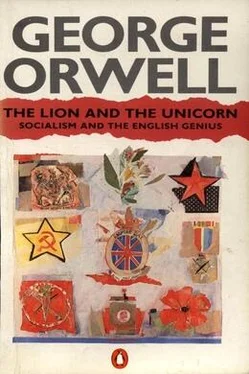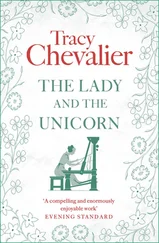George Orwell - The Lion and the Unicorn
Здесь есть возможность читать онлайн «George Orwell - The Lion and the Unicorn» весь текст электронной книги совершенно бесплатно (целиком полную версию без сокращений). В некоторых случаях можно слушать аудио, скачать через торрент в формате fb2 и присутствует краткое содержание. Год выпуска: 2018, Издательство: epubBooks Classics, Жанр: История, Публицистика, на английском языке. Описание произведения, (предисловие) а так же отзывы посетителей доступны на портале библиотеки ЛибКат.
- Название:The Lion and the Unicorn
- Автор:
- Издательство:epubBooks Classics
- Жанр:
- Год:2018
- ISBN:нет данных
- Рейтинг книги:3 / 5. Голосов: 1
-
Избранное:Добавить в избранное
- Отзывы:
-
Ваша оценка:
- 60
- 1
- 2
- 3
- 4
- 5
The Lion and the Unicorn: краткое содержание, описание и аннотация
Предлагаем к чтению аннотацию, описание, краткое содержание или предисловие (зависит от того, что написал сам автор книги «The Lion and the Unicorn»). Если вы не нашли необходимую информацию о книге — напишите в комментариях, мы постараемся отыскать её.
was written in London during the worst period of the blitz. It is vintage Orwell, a dynamic outline of his belief in socialism, patriotism and an English revolution. His fullest political statement, it has been described as ‘
’ and is as relevant now as it ever has been.
The Lion and the Unicorn — читать онлайн бесплатно полную книгу (весь текст) целиком
Ниже представлен текст книги, разбитый по страницам. Система сохранения места последней прочитанной страницы, позволяет с удобством читать онлайн бесплатно книгу «The Lion and the Unicorn», без необходимости каждый раз заново искать на чём Вы остановились. Поставьте закладку, и сможете в любой момент перейти на страницу, на которой закончили чтение.
Интервал:
Закладка:
Lord Halifax, and all his tribe, believe that when the war is over things will be exactly as they were before. Back to the crazy pavement of Versailles, back to 'democracy', i.e. capitalism, back to dole queues and the Rolls–Royce cars, back to the grey top hats and the sponge–bag trousers, in saecula saeculorum . It is of course obvious that nothing of the kind is going to happen. A feeble imitation of it might just possibly happen in the case of a negotiated peace, but only for a short while. Laissez–faire capitalism is dead. [4]The choice lies between the kind of collective society that Hitler will set up and the kind that can arise if he is defeated.
If Hitler wins this war he will consolidate his rule over Europe, Africa and the Middle East, and if his armies have not been too greatly exhausted beforehand, he will wrench vast territories from Soviet Russia. He will set up a graded caste–society in which the German Herrenvolk ('master race' or 'aristocratic race') will rule over Slavs and other lesser peoples whose job it will be to produce low–priced agricultural products. He will reduce the coloured peoples once and for all to outright slavery. The real quarrel of the Fascist powers with British imperialism is that they know that it is disintegrating. Another twenty years along the present line of development, and India will be a peasant republic linked with England only by voluntary alliance. The 'semi–apes' of whom Hitler speaks with such loathing will be flying aeroplanes and manufacturing machine–guns. The Fascist dream of a slave empire will be at an end. On the other hand, if we are defeated we simply hand over our own victims to new masters who come fresh to the job and have not developed any scruples.
But more is involved than the fate of the coloured peoples. Two incompatible visions of life are fighting one another. 'Between democracy and totalitarianism,' says Mussolini, 'there can be no compromise.' The two creeds cannot even, for any length of time, live side by side. So long as democracy exists, even in its very imperfect English form, totalitarianism is in deadly danger. The whole English–speaking world is haunted by the idea of human equality, and though it would be simply a lie to say that either we or the Americans have ever acted up to our professions, still, the idea is there, and it is capable of one day becoming a reality. From the English–speaking culture, if it does not perish, a society of free and equal human beings will ultimately arise. But it is precisely the idea of human equality—the 'Jewish' or 'Judaeo–Christian' idea of equality—that Hitler came into the world to destroy. He has, heaven knows, said so often enough. The thought of a world in which black men would be as good as white men and Jews treated as human beings brings him the same horror and despair as the thought of endless slavery brings to us.
It is important to keep in mind how irreconcilable these two viewpoints are. Some time within the next year a pro–Hitler reaction within the left–wing intelligentsia is likely enough. There are premonitory signs of it already. Hitler's positive achievement appeals to the emptiness of these people, and, in the case of those with pacifist leanings, to their masochism. One knows in advance more or less what they will say. They will start by refusing to admit that British capitalism is evolving into something different, or that the defeat of Hitler can mean any more than a victory for the British and American millionaires. And from that they will proceed to argue that, after all, democracy is 'just the same as' or 'just as bad as' totalitarianism. There is not much freedom of speech in England; therefore there is no more than exists in Germany. To be on the dole is a horrible experience; therefore it is no worse to be in the torture–chambers of the Gestapo. In general, two blacks make a white, half a loaf is the same as no bread.
But in reality, whatever may be true about democracy and totalitarianism, it is not true that they are the same. It would not be true, even if British democracy were incapable of evolving beyond its present stage. The whole conception of the militarized continental state, with its secret police, its censored literature and its conscript labour, is utterly different from that of the loose maritime democracy, with its slums and unemployment, its strikes and party politics. It is the difference between land power and sea power, between cruelty and inefficiency, between lying and self–deception, between the S.S. man and the rent–collector. And in choosing between them one chooses not so much on the strength of what they now are as of what they are capable of becoming. But in a sense it is irrelevant whether democracy, at its highest or at its lowest, is 'better' than totalitarianism. To decide that one would have to have access to absolute standards. The only question that matters is where one's real sympathies will lie when the pinch comes. The intellectuals who are so fond of balancing democracy against totalitarianism and 'proving' that one is as bad as the other are simply frivolous people who have never been shoved up against realities. They show the same shallow misunderstanding of Fascism now, when they are beginning to flirt with it, as a year or two ago, when they were squealing against it. The question is not, 'Can you make out a debating–society "case" in favour of Hitler?' The question is, 'Do you genuinely accept that case? Are you willing to submit to Hitler's rule? Do you want to see England conquered, or don't you?' It would be better to be sure on that point before frivolously siding with the enemy. For there is no such thing as neutrality in war; in practice one must help one side or the other.
When the pinch comes, no one bred in the western tradition can accept the Fascist vision of life. It is important to realize that now , and to grasp what it entails. With all its sloth, hypocrisy and injustice, the English–speaking civilization is the only large obstacle in Hitler's path. It is a living contradiction of all the 'infallible' dogmas of Fascism. That is why all Fascist writers for years past have agreed that England's power must be destroyed. England must be 'exterminated', must be 'annihilated', must 'cease to exist'. Strategically it would be possible for this war to end with Hitler in secure possession of Europe, and with the British Empire intact and British sea–power barely affected. But ideologically it is not possible; were Hitler to make an offer along those lines, it could only be treacherously, with a view to conquering England indirectly or renewing the attack at some more favourable moment. England cannot possibly be allowed to remain as a sort of funnel through which deadly ideas from beyond the Atlantic flow into the police states of Europe. And turning it round to our point of view, we see the vastness of the issue before us, the all–importance of preserving our democracy more or less as we have known it. But to preserve is always to extend . The choice before us is not so much between victory and defeat as between revolution and apathy. If the thing we are fighting for is altogether destroyed, it will have been destroyed partly by our own act.
It could happen that England could introduce the beginnings of Socialism, turn this war into a revolutionary war, and still be defeated. That is at any rate thinkable. But, terrible as it would be for anyone who is now adult, it would be far less deadly than the 'compromise peace' which a few rich men and their hired liars are hoping for. The final ruin of England could only be accomplished by an English government acting under orders from Berlin. But that cannot happen if England has awakened beforehand. For in that case the defeat would be unmistakable, the struggle would continue, the idea would survive. The difference between going down fighting, and surrendering without a fight, is by no means a question of 'honour' and schoolboy heroics. Hitler said once that to accept defeat destroys the soul of a nation. This sounds like a piece of claptrap, but it is strictly true. The defeat of 1870 did not lessen the world–influence of France. The Third Republic had more influence, intellectually, than the France of Napoleon III. But the sort of peace that Pétain, Laval and Co. have accepted can only be purchased by deliberately wiping out the national culture. The Vichy Government will enjoy a spurious independence only on condition that it destroys the distinctive marks of French culture: republicanism, secularism, respect for the intellect, absence of colour prejudice. We cannot be utterly defeated if we have made our revolution beforehand. We may see German troops marching down Whitehall, but another process, ultimately deadly to the German power–dream, will have been, started. The Spanish people were defeated, but the things they learned during those two and a half memorable years will one day come back upon the Spanish Fascists like a boomerang.
Читать дальшеИнтервал:
Закладка:
Похожие книги на «The Lion and the Unicorn»
Представляем Вашему вниманию похожие книги на «The Lion and the Unicorn» списком для выбора. Мы отобрали схожую по названию и смыслу литературу в надежде предоставить читателям больше вариантов отыскать новые, интересные, ещё непрочитанные произведения.
Обсуждение, отзывы о книге «The Lion and the Unicorn» и просто собственные мнения читателей. Оставьте ваши комментарии, напишите, что Вы думаете о произведении, его смысле или главных героях. Укажите что конкретно понравилось, а что нет, и почему Вы так считаете.












